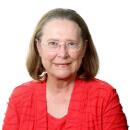Verdugo Views: Relocation camps changed the lives of many Japanese Americans during World War II
- Share via
World War II changed the lives of many people; those who fought, those who died and those who lost loved ones.
It also changed the lives of those who were considered the enemy, including the family of my husband, Glenn.
On Feb. 19, 1942, President Franklin D. Roosevelt signed Executive Order 9066, sending some 120,000 Japanese Americans to 10 hastily erected relocation camps. The majority of the evacuees were second- and third-generation American citizens.
The camps, mostly in remote areas, included schools, post offices and work facilities. Each Army-style barrack housed several families. Everyone ate in communal mess halls. Showers and latrines were also communal.
Two camps were on reservation land in Arizona. One of them was called Poston.
And this is where the story becomes personal. My husband, Glenn, was born in that camp.
Before the war, his parents were living in a farming community near Fresno. His mother, Fusaye, was an American citizen, born in 1916. His father, Ted, who was born in Japan and came here as a 4 year old, was a legal resident.
The Yamadas were truck farmers. They grew and shipped tomatoes and cucumbers and made a down payment on a small farm shortly before the war began.
They received their own executive order in the mail. Civilian Exclusion Order No. 108, dated July 22, 1942, and issued by the Western Defense Command and Fourth Army, informed them that “all persons of Japanese ancestry, both alien and non-alien,” living within the area shown by a map on the reverse side, would be evacuated from the above area before noon, Aug. 11, 1942.
Realizing they could not make the payments on the farm, they “turned it back to the bank,” as my mother-in-law later said.
The Yamadas prepared their young son, Gene, for the move and packed up their goods for storage.
On Aug. 4, the family, along with other evacuees, boarded a train for a night trip to Barstow. There, they climbed into the back of an Army truck for a five-hour ride across the desert.
The caravan crossed the Colorado River into Arizona, arriving at the Poston relocation camp, on Colorado River Indian tribal land.
Four families were assigned to each barrack. They hung bed sheets for privacy and ordered linoleum from the Sears catalog to keep desert dust from coming up between the floorboards. Like many others, the Yamadas had friends back home who brought needed items.
Many found employment in the mess halls or the camp store, or they worked in nearby fields. Ted Yamada delivered ice to mess halls. Other internees constructed an auditorium building for the high school, using local mud to make adobe bricks.
Not knowing how long they would be there, the internees created their own community, with church meetings, sports teams and Japanese dancing lessons for the young.
Ted and Fusaye’s second son, Glenn, was born in the camp hospital in November 1943. Their older son, Gene, enrolled in the camp kindergarten.
In 1945, the internees returned. Ted and Fusaye and their two boys moved into a small house on Ted’s parents’ ranch, rented several plots of land and started over. Their third son, Larry, was born in 1946.
Seven years after leaving Poston, they were again landowners. All three sons graduated from college, married and had families. Glenn and I have lived in Glendale for nearly 40 years.
Ted and Fusaye Yamada were married 68 years. They had seven grandchildren, 12 great-grandchildren and three great-great-grandchildren. They are interred in a small rural cemetery near their farming community.
To the Readers:
In 2017, to mark the 75th year of the executive order, grants were made available to preserve and interpret World War II Japanese-American confinement sites.
An internment-related exhibit, titled “Accused of No Crime: Incarceration of Japanese in America,” has opened in the ReflectSpace Gallery at the Glendale Central Library.
Funded by the California State Library’s California Civil Liberties Public Education program and curated by Ara and Anahid Oshagen, the exhibit will run through July 8.
Ted and Fusaye Yamada’s story is included in the exhibit and will also be told by documentary filmmaker Avo Kambourian at 2 p.m. July 8 in the Central Library auditorium.
Other events will include Shane Sato’s pictorial called “Go For Broke Spirit, Portraits of Courage,” at 2 p.m. on Sunday and a screening of the documentary “Citizen Tanouye” at 2 p.m. on June 23.
All events are open to the public.
For more information, visit the ReflectSpace website at https://bit.ly/2IX5jQ2.
KATHERINE YAMADA can be reached at katherineyamada@gmail.com. or by mail at Verdugo Views, c/o Glendale News-Press, 202 W. First St., Second Floor, Los Angeles, CA 90012. Please include your name, address and phone number.
